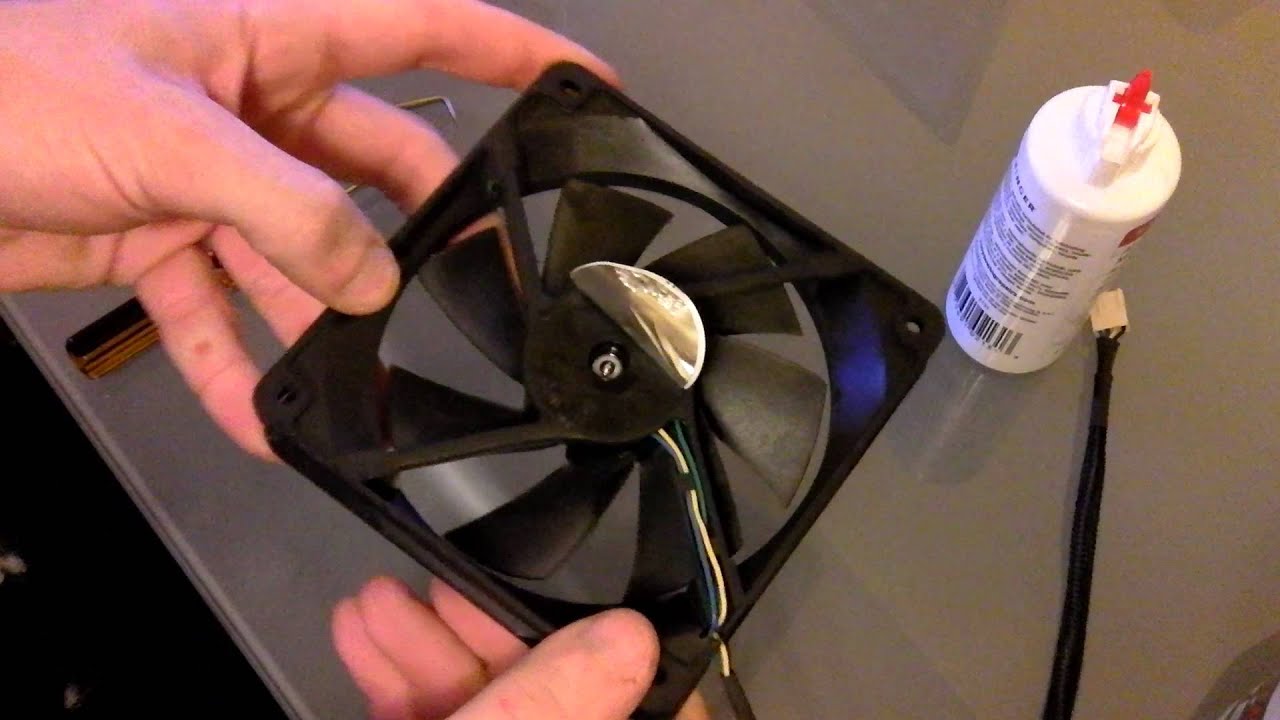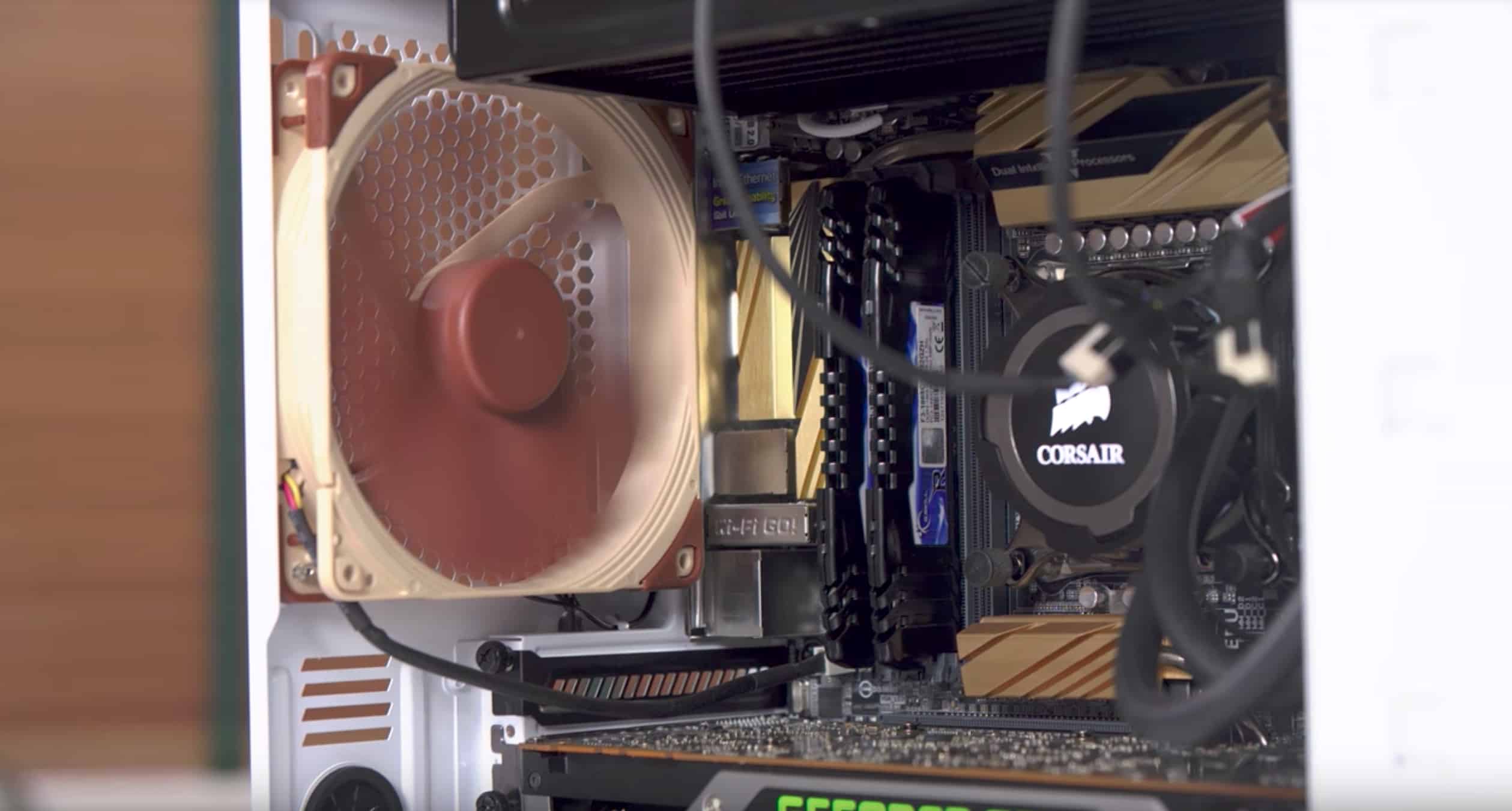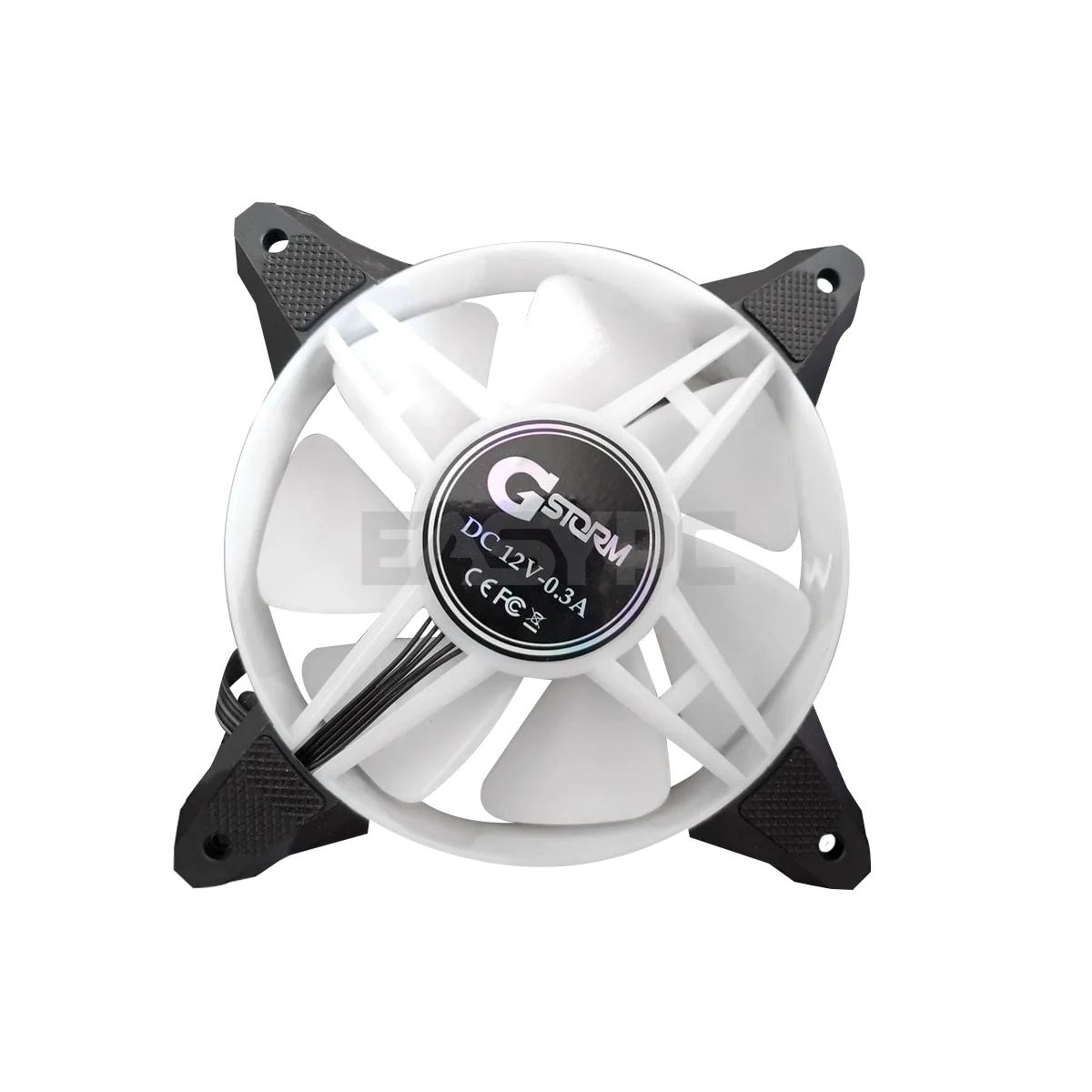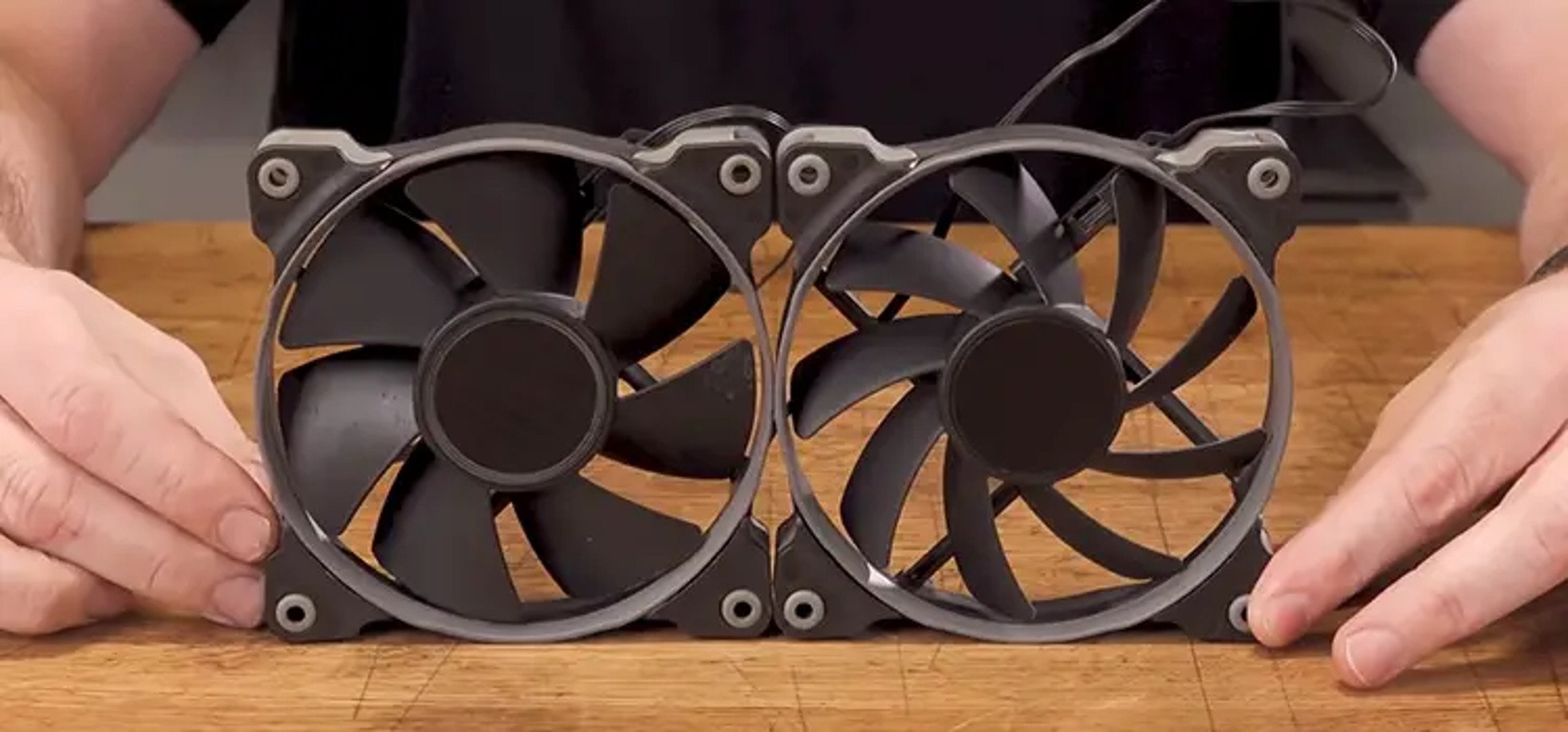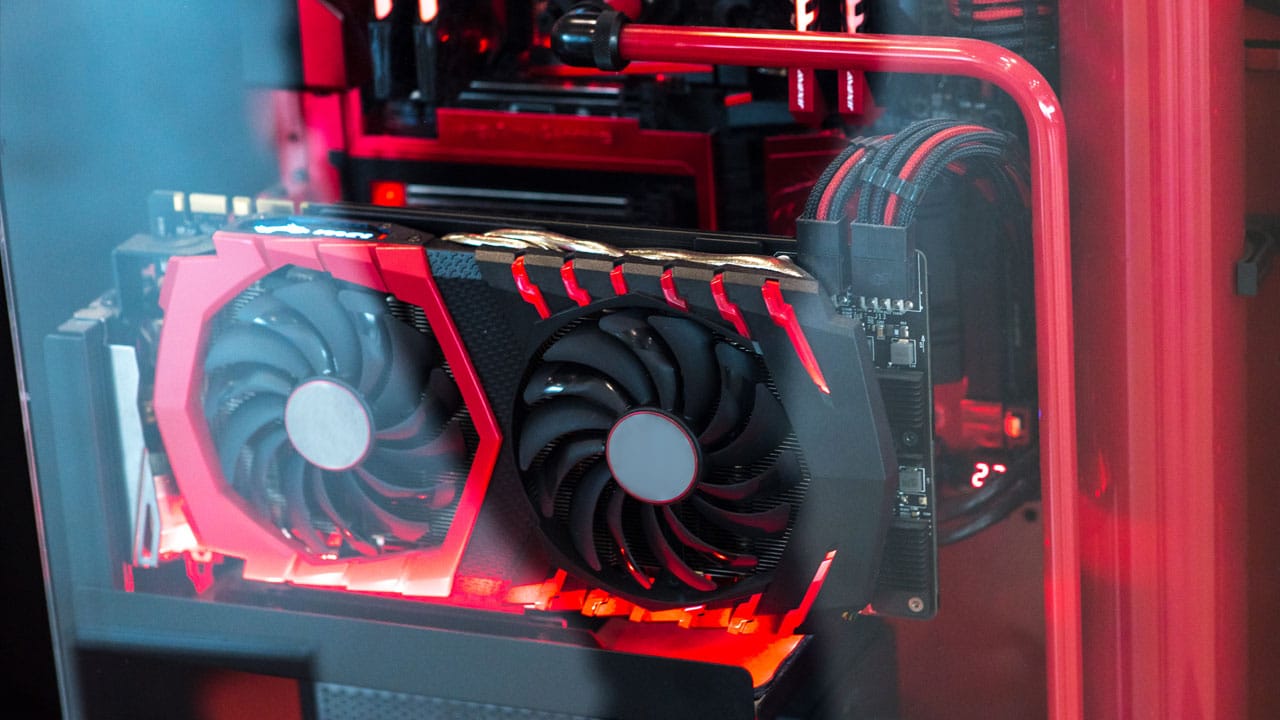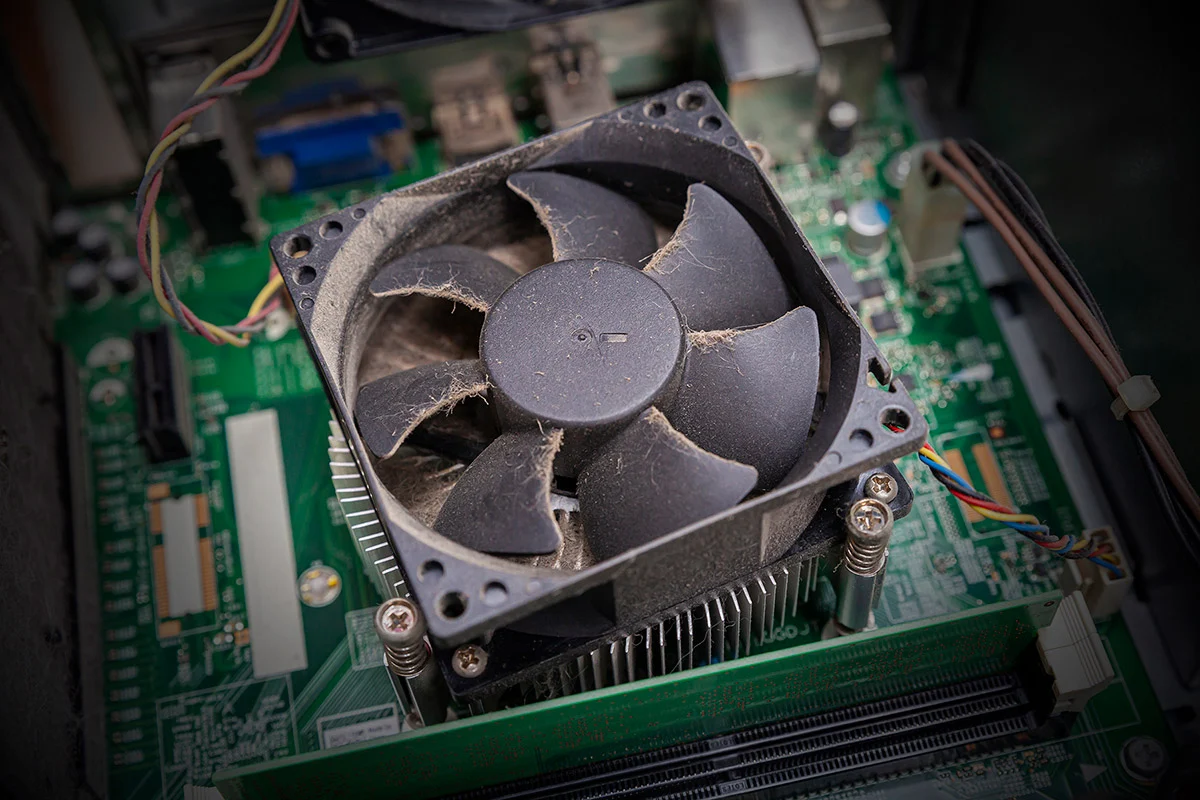Why lubrication is important for PC case fans
PC case fans play a crucial role in maintaining the optimal temperature within your computer. These fans are responsible for moving cool air into the case and expelling hot air out, preventing components from overheating. Over time, however, dust and debris can accumulate in the fan bearings, causing friction and leading to fan malfunction. This is where lubrication comes into play.
Lubricating your PC case fans is essential for their longevity and performance. By applying a thin layer of lubricant to the fan bearings, you reduce friction and ensure smoother rotation. This not only prolongs the lifespan of the fan but also helps maintain its efficiency, ensuring that your computer stays cool during intense usage.
Without proper lubrication, PC case fans may start to make unusual noises, such as squeaking or grinding sounds. These noises are a clear indication that the fan bearings are in need of lubrication. Ignoring these signs can lead to more serious issues, such as fan failure or damage to other components due to inadequate cooling.
Regular lubrication also helps to reduce the strain on your PC’s power supply. When the fan bearings are well-lubricated, the fan requires less energy to operate, resulting in lower power consumption. This not only benefits your electricity bill but also contributes to a greener environment by reducing your carbon footprint.
In addition to extending the lifespan and improving the efficiency of PC case fans, lubrication also enhances system stability. A properly lubricated fan significantly reduces the risk of overheating, which can cause system crashes and unexpected shutdowns. By maintaining optimal temperatures, lubrication contributes to a smoother and more reliable computing experience.
It is worth noting that different PC case fans may require different types of lubricants. Some fans use sleeve bearings, while others utilize ball bearings. It is important to use the appropriate lubricant for your specific fan type to ensure optimal performance and compatibility.
In the next section, we will discuss the signs that indicate when your PC case fan needs lubrication and the necessary tools and materials required for the lubrication process.
Signs that your PC case fan needs lubrication
As a PC owner, it’s important to be aware of the warning signs that indicate your PC case fan may be in need of lubrication. Recognizing these signs early on allows you to take proactive measures to prevent potential damage and maintain optimal performance. Here are some common signs to look out for:
- Unusual noises: If you notice your PC case fan emitting strange noises like squeaking, grinding, or rattling, it is a clear indication that lubrication is needed. These noises typically occur when the bearings are dry and experiencing friction as the fan rotates.
- Inconsistent fan speed: When your PC case fan starts to spin at irregular speeds or fluctuates unexpectedly, it may be a sign that the fan bearings are not properly lubricated. Inadequate lubrication can hinder the smooth rotation of the fan, resulting in inconsistent performance.
- Increased heat levels: If you begin to notice a gradual increase in the temperature of your PC, despite normal usage, it could be a sign that your case fan is not functioning optimally. Inadequate lubrication can lead to reduced airflow and poor heat dissipation, causing heat to build up within the system.
- Reduced fan efficiency: Over time, dust and debris can accumulate in the fan bearings, impeding their rotation. This accumulation can cause the fan to spin less freely and reduce its overall efficiency. If you notice a decrease in the airflow generated by the fan, it may be due to accumulated debris and lack of lubrication.
It is important to address these signs promptly to prevent further damage or fan failure. Regularly checking for these signs and performing routine maintenance, such as lubrication, can help extend the lifespan of your PC case fan and ensure optimal performance.
Now that you know the signs indicating the need for lubrication, let’s move on to the next section, where we will discuss the tools and materials required to lubricate your PC case fans.
Tools and materials required for lubricating PC case fans
Before you begin the process of lubricating your PC case fans, it’s important to gather the necessary tools and materials. Having the right equipment at hand will make the lubrication process smooth and efficient. Here are the essential tools and materials you will need:
- Screwdriver set: Depending on the type of case and fan you have, you may need a screwdriver to remove the fan from the case. Make sure to have a set of screwdrivers with various sizes and types to ensure compatibility.
- Cotton swabs: Cotton swabs or cotton buds are ideal for cleaning the fan blades and removing any accumulated dust or debris. They allow you to reach the tight spaces and corners of the fan effectively.
- Isopropyl alcohol: Isopropyl alcohol, also known as rubbing alcohol, is used for cleaning the fan bearings and removing any old lubricant. It effectively dissolves dirt, grime, and residue, leaving the bearings clean and ready for lubrication.
- Lint-free cloth: A lint-free cloth or microfiber cloth is essential for wiping and drying the fan components. It ensures that no lint or fibers are left behind on the fan blades or bearings.
- Lubricant: Choosing the right lubricant is crucial for proper fan performance. There are different types of lubricants available, such as silicone-based or mineral oil-based lubricants. Make sure to select a lubricant specifically designed for use in computer fans.
It is important to note that some PC case fans have sealed bearings that do not require lubrication. In such cases, lubricating the fan may void the warranty or cause damage. Therefore, before proceeding with lubrication, ensure that your fan is suitable and designed for lubrication.
Now that you have all the necessary tools and materials, we can move on to the next section, where we will discuss the step-by-step process of lubricating your PC case fans.
Steps to lubricate PC case fans
Now that you have gathered all the necessary tools and materials, it’s time to proceed with lubricating your PC case fans. Follow these step-by-step instructions to ensure a successful lubrication process:
- Prepare your workspace: Before you begin, make sure to turn off your computer and unplug it from the power source. This ensures your safety and prevents any potential damage to your PC. Find a clean and well-lit workspace where you can comfortably work on your PC case fans.
- Remove the PC case fan: Use the appropriate screwdriver to carefully remove the PC case fan from its position. Take note of the screws and connectors holding the fan in place, as you will need to reassemble it later. Place the fan on an anti-static surface to avoid any electrostatic discharge.
- Clean the fan blades: Take a cotton swab dipped in isopropyl alcohol and gently clean the fan blades. This will remove any dust, debris, or residue that may have accumulated over time. Ensure that the fan blades are completely dry before proceeding to the next step.
- Clean the fan bearings: Dip another cotton swab in isopropyl alcohol and carefully clean the fan bearings. Rotate the fan manually to access all sides of the bearings. This will remove any old lubricant and ensure that the bearings are clean and ready for lubrication.
- Apply lubricant: Place a small amount of the appropriate lubricant into the fan bearings. Be careful not to overdo it, as too much lubricant can cause issues. Use the manufacturer’s guidelines or recommendations for the proper amount of lubricant to apply. A single drop is usually sufficient.
- Reassemble the PC case fan: Carefully put the fan back into its original position, aligning the screw holes and connectors. Use the previously removed screws to secure the fan in place. Ensure that it is firmly and evenly tightened to prevent any wobbling or instability.
- Test the fan: Once the fan is reassembled, plug your computer back in and turn it on. Pay attention to the fan’s performance, ensuring that it spins smoothly and quietly. If you hear any unusual noises or notice any issues, it may be necessary to repeat the lubrication process.
Following these steps will help ensure that your PC case fans are properly lubricated and functioning optimally. Regularly inspecting and maintaining your fans will go a long way in prolonging their lifespan and keeping your computer running smoothly.
Next, we will discuss the precautions you should take while lubricating your PC case fans to avoid any accidental damage or injuries.
Precautions to take while lubricating PC case fans
While lubricating PC case fans is a straightforward process, it is important to take certain precautions to ensure your safety and prevent any accidental damage. Follow these precautions to make the lubrication process smooth and risk-free:
- Turn off and unplug your computer: Before you start working on your PC case fans, make sure to shut down your computer and disconnect it from the power source. This eliminates the risk of electric shock and protects your PC from potential damage.
- Handle components with care: When removing and reassembling the PC case fans, handle them with caution. Avoid applying excessive force or torque, as this can lead to component damage. Additionally, be mindful of static electricity and use anti-static surfaces or wrist straps to prevent electrostatic discharge.
- Use the correct lubricant: Ensure that you are using the appropriate lubricant for your specific fan type. Different fans may require different types of lubricants, so refer to the manufacturer’s guidelines or specifications. Using the wrong lubricant can result in poor performance and potentially damage the fan bearings.
- Apply the right amount of lubricant: It is important to apply the proper amount of lubricant to the fan bearings. Too little lubricant can lead to insufficient lubrication, while too much can cause excess friction and other issues. Follow the manufacturer’s recommendations or guidelines regarding the appropriate amount to use.
- Keep the workspace clean: Make sure your workspace is free from dust, debris, and any other materials that may contaminate the fan components during the lubrication process. A clean workspace will help ensure that no foreign particles interfere with the fan performance after lubrication.
- Monitor the fan’s performance: After reassembling and testing the fan, keep an eye on its performance. Pay attention to any unusual noises, vibrations, or changes in speed. If any issues arise, it may be necessary to repeat the lubrication process or seek professional assistance.
By following these precautions, you can effectively lubricate your PC case fans without encountering any complications or risks. Maintaining a safe and controlled environment will help ensure successful fan performance and contribute to the overall longevity of your computer.
Lastly, in the next section, we will explore the benefits of regular lubrication for PC case fans and discuss other maintenance tips to keep your fans in optimal condition.
Benefits of regular lubrication for PC case fans
Regularly lubricating your PC case fans offers several benefits that contribute to the overall performance and lifespan of your computer. Let’s explore the advantages of incorporating regular lubrication into your PC maintenance routine:
- Improved fan performance: Lubrication ensures that the fan bearings operate smoothly, reducing friction and allowing for efficient rotation. This results in improved airflow and heat dissipation, keeping your computer running at optimal temperatures.
- Extended fan lifespan: The friction caused by dry bearings can lead to premature wear and tear of your PC case fans. Regular lubrication reduces this friction, preventing excessive strain on the fan and extending its overall lifespan.
- Reduced noise: Unlubricated fans tend to produce annoying sounds like squeaking, grinding, or rattling. By keeping the fan bearings properly lubricated, you can minimize these noises, ensuring a quieter computing experience.
- Lower power consumption: Well-lubricated fans operate smoothly and require less power to rotate. This results in reduced energy consumption, potentially lowering your electricity bill and contributing to a greener environment.
- Enhanced system stability: Overheating can cause system instability, leading to crashes and unexpected shutdowns. Regular lubrication helps maintain optimal fan performance, preventing overheating-related issues and ensuring a stable and reliable computing experience.
By incorporating regular lubrication into your PC maintenance routine, you can ensure that your PC case fans perform at their best, providing efficient cooling for your computer’s components. Additionally, regular lubrication reduces the risk of fan failure, minimizing the need for costly repairs or replacements.
It’s important to note that while lubrication is beneficial, excessive or improper lubrication can also cause issues. Be sure to follow the manufacturer’s recommendations and guidelines regarding the type and amount of lubricant to use for your specific fan model.
Now that we’ve explored the benefits of regular lubrication, let’s move on to the next section, where we will discuss additional maintenance tips to keep your PC case fans in optimal condition.
Other maintenance tips for PC case fans
In addition to regular lubrication, there are several other maintenance practices you can follow to ensure the optimal performance and longevity of your PC case fans. Incorporate these tips into your routine to keep your fans in excellent condition:
- Regular cleaning: Dust and debris can accumulate on the fan blades and hinder airflow. Regularly clean your PC case fans using compressed air or a soft brush to remove any build-up. This will help maintain optimal airflow and prevent overheating.
- Check for obstructions: Periodically check for any obstructions that may interfere with the fan’s rotation. Ensure that cables, wires, or other components are not blocking or impeding the fan’s movement. Clear away any obstacles to maintain uninterrupted airflow.
- Keep your computer in a clean environment: Minimize the accumulation of dust by keeping your computer in a clean and dust-free environment. Use air filters on intake fans and regularly clean the area around your computer to prevent excessive dust build-up.
- Monitor fan speeds: Keep an eye on the fan speeds using software or BIOS monitoring tools. Abnormally low or fluctuating fan speeds may indicate a problem. Address any issues promptly to prevent potential fan failures or cooling inefficiencies.
- Replace worn-out fans: If a fan is damaged, making excessive noise, or no longer functioning properly despite regular maintenance, consider replacing it with a new one. Continuing to use a faulty fan can result in inadequate cooling and potential damage to other components.
- Follow manufacturer guidelines: Always refer to the manufacturer’s recommendations and guidelines for maintenance, lubrication, and cleaning. Different fan models may have specific maintenance requirements, so it’s important to follow the provided instructions.
By incorporating these maintenance tips into your routine, you can ensure that your PC case fans operate at their best, providing effective cooling and contributing to the overall performance and reliability of your computer system.
Now that we have covered various maintenance tips, let’s conclude our discussion on the importance of lubrication and proper maintenance for PC case fans.
Conclusion
Proper lubrication and regular maintenance are essential for ensuring the optimal performance and longevity of your PC case fans. By following the steps to lubricate your fans, being mindful of the signs that indicate the need for lubrication, and taking necessary precautions, you can maintain a well-functioning cooling system for your computer.
Lubricating PC case fans reduces friction and enhances airflow, which helps prevent overheating and maintains stable system temperatures. Additionally, regular lubrication extends the lifespan of your fans, reduces noise, lowers power consumption, and enhances overall system stability.
Remember to use the appropriate tools and materials, clean the fans regularly, and monitor their performance to ensure they operate at their best. If a fan becomes too damaged or faulty, consider replacing it with a new one to maintain optimal cooling efficiency.
By incorporating these maintenance practices, you can not only prolong the lifespan of your PC case fans but also enhance the overall performance and reliability of your computer system. So, make sure to prioritize regular lubrication and maintenance to keep your PC running smoothly for years to come.







